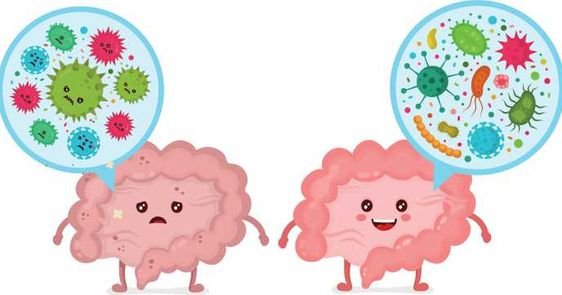

The human microbiome, especially the gut microbiome, has emerged as a central player in our overall health and well-being. Recent research has linked this microscopic ecosystem to a myriad of health aspects and diseases, shaping the future of personalized medicine and treatment approaches. Trinity Hospital and Heart Foundation, a leading multi-specialty healthcare provider, is at the forefront of integrating these groundbreaking discoveries into clinical practices, particularly within the gastroenterology field.
Understanding the Gut Microbiome
The gut microbiome consists of trillions of bacteria, viruses, and fungi that inhabit our gastrointestinal tract. Far from being mere passengers, these microorganisms play crucial roles in digesting food, protecting against pathogens, and regulating the immune system. Each individual’s gut microbiome is unique, influenced by factors such as diet, lifestyle, and genetics.
The Link Between Gut Health and Disease
Research has unveiled that disruptions in the gut microbiome’s balance, known as dysbiosis, are linked to numerous diseases, including inflammatory bowel disease (IBD), irritable bowel syndrome (IBS), and even non-gastrointestinal disorders like diabetes, obesity, and mental health conditions such as depression and anxiety. This connection opens up new avenues for medical interventions that target the microbiome.
Inflammatory Bowel Disease (IBD)
Studies have shown that patients with IBD often have a less diverse gut microbiome, which can exacerbate the body’s inflammatory response. Personalized treatments that include prebiotics, probiotics, and tailored diets can help restore this balance and alleviate symptoms.
Obesity and Metabolic Health
The composition of gut bacteria plays a role in how the body processes food and stores fat. Researchers are exploring how manipulating these microbes can aid in weight management and reduce complications related to metabolic syndromes.
Mental Health
An exciting area of research is the gut-brain axis, which refers to how the gut and brain communicate. Evidence suggests that certain gut bacteria can produce neurotransmitters like serotonin and dopamine, potentially influencing mood and behavior directly.
Personalized Medicine and the Gut Microbiome
The uniqueness of each individual’s microbiome suggests that personalized medicine is the future of treatment. At Trinity Hospital and Heart Foundation, gastroenterologists use microbiome analysis to tailor treatments to individual needs. This approach not only improves efficacy but also minimizes adverse reactions.
Diagnostic Advances
Advanced diagnostics, including genomic sequencing of gut bacteria, provide insights that were not available even a decade ago. These tools allow doctors to identify specific bacterial populations that may be contributing to a patient’s condition and adjust treatment plans accordingly.
Tailored Nutritional Recommendations
Diet plays a pivotal role in shaping the gut microbiome. Personalized dietary plans based on microbiome analysis can help optimize gut health, reducing the risk of chronic diseases and improving overall wellness.
Probiotic and Prebiotic Therapies
The targeted use of probiotics (live beneficial bacteria) and prebiotics (compounds that feed beneficial bacteria) is becoming an integral part of treating gastrointestinal disorders. These therapies support the growth of a healthy microbiome, leading to improved gut health and disease management.
The Future of Gut Microbiome Research
Continued research into the gut microbiome is vital. At Trinity Hospital and Heart Foundation, ongoing studies aim to further decode the complex interactions within the gut and their effects on health and disease. This research not only promises to revolutionize the way we treat existing diseases but also opens up the possibility of preventing various conditions through early microbiome modulation.
Conclusion
The burgeoning field of microbiome research offers exciting possibilities for the future of medicine. As we continue to uncover how the gut microbiome influences health and disease, personalized medicine approaches will become increasingly sophisticated. Trinity Hospital and Heart Foundation remains committed to incorporating these advancements into our gastroenterology practices, ensuring that our patients receive the most innovative and effective treatments available.
By harnessing the power of the gut microbiome, we are not just treating diseases but also enhancing the overall health and quality of life for our patients, paving the way for a healthier future.


